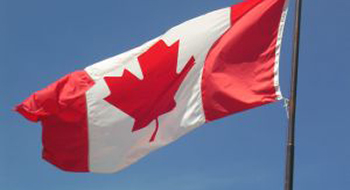
Canada has surpassed the United States for levels of economic freedom, according to a new report released today by the Fraser Institute, Canada’s leading public policy think-tank.
Canada ranks sixth in the world for economic freedom with a score of 7.81 while the United States fell to 10th overall with a score of 7.60, according to the Economic Freedom of the World: 2011 Annual Report.
But Canada’s score actually decreased this year from 7.95 in 2010, part of an overall decline in levels of economic freedom around the globe. This year’s report shows that the average economic freedom score worldwide fell to 6.64 in 2009 (the most recent year for which data are available) from 6.67 in 2008.
“Despite Canada’s relatively high score, there is much cause for concern over the worldwide decline in economic freedom, which dropped to its lowest level in nearly three decades,” says Fred McMahon, vice-president of international policy research, Fraser Institute. “In response to the American and European debt crises, governments around the world are embracing perverse regulations and this has huge, negative implications for economic freedom and financial recovery.”
The United States experienced one of the largest drops in economic freedom, falling to 10th place overall from sixth in 2010. Much of this decline is a result of higher spending and borrowing on the part of the U.S. government, and lower scores for legal structure and property rights.
Hong Kong again topped the rankings of 141 countries, followed by Singapore, New Zealand, Switzerland and Australia.
Research shows that people living in countries with high levels of economic freedom not only enjoy higher levels of prosperity and greater individual freedoms, but also longer life spans.
“The link between economic freedom and prosperity is undeniable: the countries that score highly in terms of economic freedom also offer their people the best quality of life,” McMahon says.
“The political uprisings sweeping across the Arab World are the result of people wanting the outcomes of economic freedom—prosperity, job growth, political freedoms and poverty reduction.”
The annual peer-reviewed economic freedom report uses 42 different measures to create an index ranking of 141 countries around the world based on policies that encourage economic freedom. The cornerstones of economic freedom are personal choice, voluntary exchange, freedom to compete and security of private property. Economic freedom is measured in five different areas: (1) size of government, (2) legal structure and security of property rights, (3) access to sound money, (4) freedom to trade internationally and (5) regulation of credit, labour and business.
Canada’s scores in key components of economic freedom (from one to 10, where higher values indicate higher levels of economic freedom) are as follows:
- Size of government: dropped to 6.12 from 6.54
- Legal structures and security of property rights: dropped to 8.15 from 8.28
- Access to sound money: rose slightly to 9.55 from 9.54
- Freedom to trade internationally: dropped to 6.95 from 7.10
- Regulation of credit, labour and business: dropped to 8.15 from 8.31
Top scorers were:
- Hong Kong (9.01 out of 10)
- Singapore (8.68)
- New Zealand (8.20)
- Switzerland (8.03)
- Australia (7.98)
- Canada (7.81)
- Chile (7.77)
- UK (7.71)
- Mauritius (7.67)
- US (7.60)
